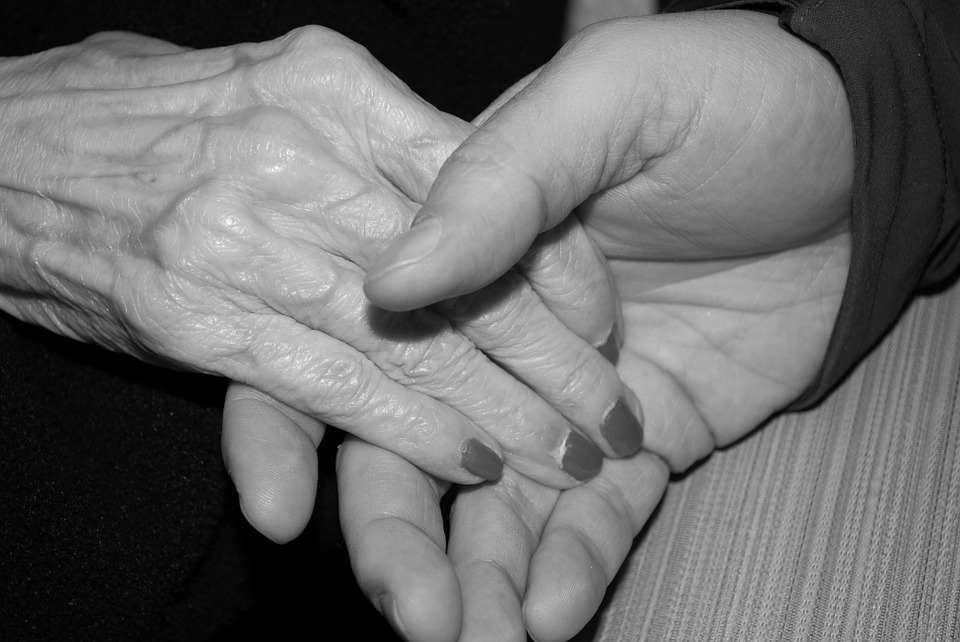The federal government’s recent introduction of Bill C-14, designed to permit physician-assisted suicide, prompted widely divergent responses among Canadians, ranging from criticism that it did not go far enough to suggestions it put Canada on the path to government-encouraged dying.
The Centre for Israel and Jewish Affairs (CIJA), the community’s major advocacy organization, found that elements of the bill addressed concerns it had raised over the proposals of a parliamentary committee that studied the issue.
“We are pleased that C-14 conforms with other North American jurisdictions where MAID [medical assistance in dying] is legal, restricting access to adults who are approaching a natural death,” said Noah Shack, CIJA’s director of policy. “In more permissive European jurisdictions, children and individuals with psychiatric disorders or minor medical conditions can be eligible for a hastened death. We are glad that the government has chosen a more moderate approach.
READ: ORTHODOX RABBIS TAKE STAND AGAINST ASSISTED DYING
“We look forward to exploring the possibility of an additional provision to explicitly ensure that physicians who do not wish to provide MAID for reasons of conscience cannot be compelled to do so,” Shack said.
As to critics’ suggestions that the bill did not go far enough – that it ignored the parliamentary committee’s recommendation to permit mature minors, people suffering mental illness and those not suffering a terminal illness to choose to die – Shack said: “We empathize with patients under the age of 18 who are suffering and may wish to avail themselves of MAID. However, there are significant concerns both with minors taking such a grave decision on their own and with parents taking such a decision on behalf of their child. In our view, given the finality of MAID, a cautious approach to criteria for consent is warranted.”
Bill C-14, which passed first reading on April 14, was formulated in response to a Supreme Court of Canada decision about one year ago in the Carter case that struck down Criminal Code provisions against assisted suicide. The High Court gave the federal government until June 6 to craft legislation that permitted physician-assisted death.
With a bill on the horizon, CIJA canvassed the Jewish community and found “divergent opinions on whether physician-assisted death (PAD) should be permitted in Canada.”
Some in the Jewish community were concerned about where the country is headed.
Janice Halpern, a Toronto psychiatrist, said the proposed legislation “appears to have protected a range of vulnerable patients, which is something we have fought for. At the same time, however, it does not sufficiently protect the conscience rights of health care professionals.
“Should this bill be passed, Canada will have the dubious distinction of being the only country with assisted dying legislation that forces health-care professionals to act against their values, morals or religious beliefs,” she stated.
“One very recent and surprising twist is that members of our Senate are considering holding up the passing of this bill in order to make it more extensive – to endanger the vulnerable,” Halpern noted.
Rabbi Dan Moskovitz of Temple Sholom in Vancouver has counselled a patient undergoing chemotherapy who was in great pain and wanted to die. On other occasions, family members have sought his advice about patients in the late stages of a terminal illness.
“I advised that we cannot hasten death, but we must do all we can to alleviate pain,” he said.
Rabbi Moskovitz, who has written an extensive sermon on the topic, said Jewish law prohibits assisted death, and he would advise against it.
However, he acknowledged his advice is not binding, and ultimately it’s the individual’s choice.
“I do support the bill,” he stated in an email correspondence. “I think people in general should have that option. But as a Jew, it is not one we are empowered to make. There are things the larger society can do that Jews as per our covenant with God cannot.
“I worry about an obligation to die. The societal and socio-economic implications are significant,” he stated.
Rabbi Michael Dolgin of Temple Sinai in Toronto, said, “I was reassured that the government bill struck a more responsible tone than the recommendations of the [parliamentary] committee. I was pleased that suggestions from the committee regarding minors and mental illnesses were not included in the government bill. I am hopeful the bill continues in that direction.”
READ: ORTHODOX DOCTORS WRESTLE WITH ETHICS OF ‘ASSISTED SUICIDE’
He said PAD should apply only to people diagnosed with an illness that can’t be cured and whose suffering cannot be ameliorated. That would apply to only one to two per cent of “late life” cases, he said.
Rabbi Daniel Korobkin, who co-authored a document with Rabbi Chaim Strauchler of Shaarei Shomayim Congregatin against physician-assisted dying, said the Canadian public and health care professionals have “to do what we can within the law to turn it back and scale it back as much as possible.”
Although he conceded the bill would likely pass, Rabbi Korobkin said opponents should do all they can to limit its applicability.
He said Jewish law has always believed that life comes from God, and “suicide is tantamount to murder. The Lord gives and the Lord takes away. They’re not our lives to take.”
Rabbi Korobkin, senior rabbi at Beth Avraham Yoseph of Toronto Congregation, said the document he and Rabbi Strauchler crafted has received wide support among Orthodox rabbis and from spiritual leaders in other streams of Judaism. Now, “we must reach out to other faiths, to create a broader coalition of louder voices to be heard by politicians and health care facilities,” he said.
